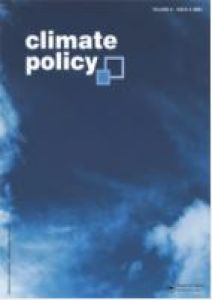

Climate risk and IMF surveillance policy: a baseline analysis
Climate Policy, December 2021
Author(s):
Summary:
Climate Policy, December 2021
| Type : | Academic Publication |
|---|---|
| Date : | 04/01/2022 |
| Keywords : |
The International Monetary Fund (IMF) has been tasked with quickly devising a climate change strategy that helps its members meet collective climate change and development goals while maintaining financial stability. In this paper, autors develop an analytical framework of the ‘macro-critical’ nature of climate change and use that framework to examine the extent to which the IMF has incorporated the macro-economic aspects of climate change in recent years. They deploy textual analysis algorithms to perform a baseline analysis of the extent to which the IMF’s main bilateral surveillance activities—Article IV reports and Financial Sector Assessment Programs (FSAPs)—have focused on climate risks between 2017 and 2021. They find that IMF surveillance activity has paid little and uneven attention to climate risks in Article IV reports, and even less so in FSAPs. However, recent Article IV and FSAP assessments have piloted climate risk analyses that present an opportunity to be expanded and incorporated systematically. The analytical framework, baseline analysis, and methodology will allow future analysts to monitor IMF climate performance over time.
Key policy insights
Keywords International Monetary Fund, surveillance, climate change, physical risk, transition risk, Macro-Criticality |

